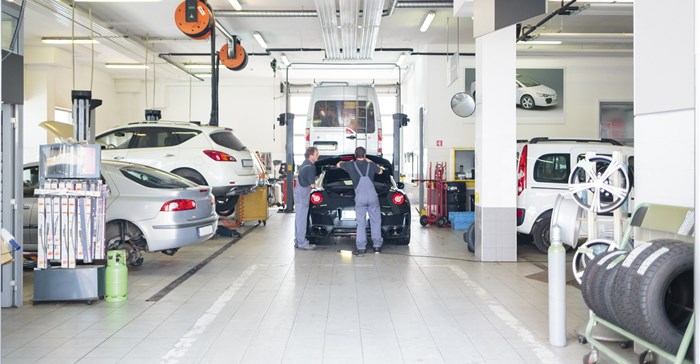Due to the poor economic environment, dealerships have moved out of small towns, leaving many motorists inconvenienced and having to incur extra costs to have their vehicles serviced.

Image source: Getty/Gallo
“This means motorists with vehicles under warranty in these small towns are forced to have their vehicles serviced in the bigger towns and cities. This is not only inconvenient but can be costly too," says Gunther Schmitz, chairman of Right to Repair South Africa (R2RSA).
Brands such as Mercedes Benz, BMW, Audi, VW, KIA, Hyundai, Jeep, and Chrysler no longer have a presence in small towns. “Ford and Toyota seem to be the exception,” he says.
"What doesn’t make sense is that in many, if not most, of these smaller towns there are independent workshops that are able and willing to service these vehicles. Unfortunately, due to the current status quo in the country, the vehicle owners do not have a choice but to use these out-of-town dealerships or risk losing their warranties,” says Schmitz.
This is one of the reasons why R2RSA is advocating for change which will give consumers the right to have their vehicles repaired at a workshop of their choice.
Long-distance repairs
“The manufacturers began demanding too much from dealerships in terms of building specifications, furniture and so on. All additional expenses. It made it difficult for dealerships in small towns to survive. The manufacturers responded by closing the dealerships,” says Andy Goetsch, a former owner of a dealership and independent workshop in Mokopane, Limpopo,
He says local vehicle owners have to travel to Pretoria for servicing, in most instances. “Pretoria is over 200 km away while there are accredited independent workshops and other dealerships a kilometre away who could very adequately service the vehicle,” he says.
And this is even not the worse case scenario. Goetsch shares a story of a couple who bought a vehicle from a dealership while living in Pretoria. “They were then transferred to Springbok in the Northern Cape for work. After a few months it was time to service their car. They realised that the nearest dealership was in Cape Town – over 550 kilometres away. They had to take two days off work to have their car’s oil and filters changed,” he says.
Supporting small businesses
Besides the inconvenience and cost, Schmitz believes we should also be supporting existing and potential small medium enterprises (SME), especially in these smaller towns, and dispersing economic concentration. “This is key to job creation in economies globally. Part of the reason the South African economy is where it is today is because of economic concentration and this is being perpetuated by the manufacturers in our sector,” he says.
He adds that the additional costs associated with having to travel out-of-town for repairs means there’s a good chance that car owners delay doing maintenance or servicing of their vehicles. “Consumers need affordable and convenient repairs. We need to discourage unroadworthy vehicles on our roads. By opening up the market to independent workshops and offering consumers choice, there will be a drop in prices as competition increases. We need this to happen in our country,” says Schmitz.
“If things continue as they are there’s a very good chance that in less than 10 years the independent aftermarket will be significantly reduced due to no access to repair information, tools and training. The workshops in smaller towns will most probably be the first to close their doors.”
He says that what we do now will directly affect the sustainability of the SME portion of this sector as well as new empowerment businesses entering the market in the future. “Vehicle owners have been dictated to and inconvenienced for long enough. The time for change is now and we will continue advocating for this change while waiting for the Automotive Code of Conduct to be finalised,” he says.
































